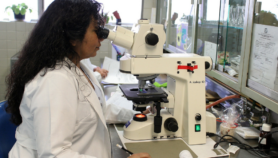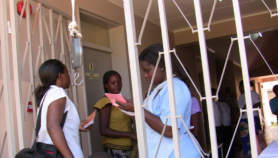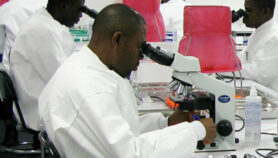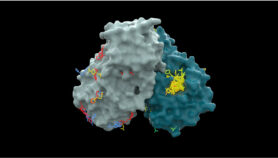By: Michael Malakata
Send to a friend
The details you provide on this page will not be used to send unsolicited email, and will not be sold to a 3rd party. See privacy policy.
[MAPUTO] African universities are collaborating to develop degree programmes that will accelerate agricultural research and biotechnology development in Eastern and Southern Africa.
The announcement was made at a conference on biotechnology, breeding and seed systems in Maputo, Mozambique, this week (27 March).
The Regional Universities Forum for Capacity Building in Agriculture (RUFORUM), made up of 12 Eastern and Southern Africa universities, has developed doctoral programmes in dairy science, food science, plant breeding and biotechnology, research methodology and rural development, and crop improvement.
Adipala Ekwamu, RUFORUM’s regional coordinator, says the degrees will be developed jointly by the universities and will involve roving tutors and web tutorials.
"These are regional PhDs," Ekwamu told SciDev.Net. "We are running these programmes to equip our scientists and fill the gaps that are being left by those fleeing for greener pastures."
After graduation, students will be given jobs in research institutions in the region to boost research capacity.
Universities involved include, among others, the University of Zambia, Malawi University, Makerere University, Africa University and the University of Zimbabwe.
Each programme will cost RUFORUM US$800,000. The programmes are sponsored by the Forum for Agricultural Research in Africa (FARA) under its Sub-Saharan Africa Challenge Program and its Strengthening Capacity for Agricultural Research and Development in Africa.
FARA secretary general Monty Jones said Africa needs to train more scientists in agricultural research to make significant progress in scientific research.
"So many younger African scientists are coming up and they need further training in order for them to make progress," said Jones.
The training will be modelled on course-based systems in the United States, with mandatory publication in a peer-reviewed journal. The programmes will start in August this year.
The project is not part of the plans for networks of centres of excellence developed under the New Partnership for Africa’s Development, but RUFORUM has the same objective of using collective action to build science and technology capacity to speed Africa’s development.
At the end of the Maputo conference, scientists said more human resources were needed in agricultural science.
They also called for African systems of research and innovation to create better crop varieties that will improve food security.
Officially closing the conference, Gary Toenniessen, director of the Rockefeller Foundation, said it is only through human resource development that Africa is going to realise its dream of a green revolution.
"We should always emphasise the importance of training and human resource development in order to realise our goals," he said.













